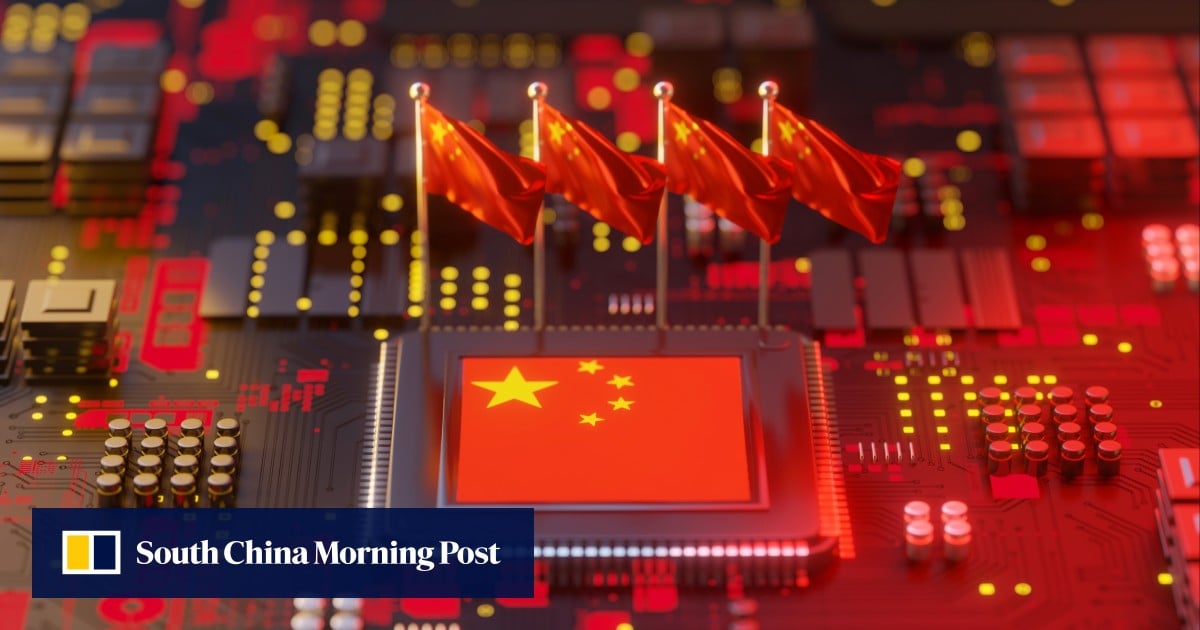‘Huge’ quantum impact: Chinese physicists say US trade blacklist is major blow

This is the second time quantum-related research institutes and companies have been added to the trade blacklist, but the scope is much broader, according to Chinese scientists.
“Almost all of China’s core strength in quantum information research has been listed,” said Yin Zhangqi, a physicist at the Beijing Institute of Technology, who described the impact as “huge”.
Among the new entrants, “22 institutes and firms were added … for acquiring or attempting to acquire US-origin items to enhance [China’s] quantum capabilities”, the US department’s Bureau of Industry and Security said in a statement on the update.
“These activities have substantial military applications and pose a significant threat to US national security,” it said.
A scientist surnamed Liu working at one of the research institutes targeted called the latest sweep “unprecedented” – as “almost all [Chinese] laboratories involving quantum research have been listed”.
The scientist, who declined to give his full name due to the sensitivity of the issue, said a laser ordered last year was about to be shipped from the United States, but he had just been informed that it might be held up in customs.
One company on the list, Origin Quantum Computing Technology, was founded in 2017 by a pair of leading USTC quantum physicists and is the backbone for China’s quantum computing research and its industrial applications.
USTC, or the University of Science and Technology of China, is a pioneering institute in domestic quantum research. Pan Jianwei, dubbed the country’s “father of quantum”, is a professor at the university.
The university is also an innovation hub that has spawned many start-ups, thanks to steady scientific breakthroughs, a competitive talent pool and generous support from the local government.
Four research centres under the premier Chinese Academy of Sciences, including the Centre for Excellence in Quantum Information and Quantum Physics, Institute of Physics, Key Laboratory for Quantum Information, Shanghai Institute of Microsystem and Information Technology, are also on the updated sanctions list.
Others include research institutes across China, such as the Beijing Academy of Quantum Information Sciences, the Shanghai Centre for Quantum Science Research and the Shenzhen Institute of Quantum Science and Engineering.
Quantum research at the USTC benefited from sending students and researchers to the West for training, Yin at the Beijing Institute of Technology said. But while many USTC graduates may continue to go to the US for higher studies, the latest measure will undoubtedly act as a dampener.
Yin also said that since the sanctions list was issued by the commerce department and not directly related to the US Citizenship and Immigration Services, it was unlikely to have a direct impact on USTC students’ visa applications in the short term.
However, the blacklisting indicates that the US will become increasingly strict in granting visa approvals to Chinese students in STEM-related fields, he added, referring to the acronym for education in science, technology, engineering and mathematics.
In a live talk on social media platform WeChat yesterday, a USTC scientist said that continued tightening of US containment measures could have “far-reaching implications” for quantum research in China.
One possible consequence, he said, would be that Chinese researchers might find it more difficult to publish articles in top academic journals such as Nature and Science, with their findings likely to undergo more scrutiny to ensure compliance with US sanctions.
But, despite the challenges, Liu struck an optimistic note. Compared with other hi-tech sectors such as semiconductors and AI, the quantum gap between Chinese players and their Western counterparts was not as wide, he said.
China is speeding up efforts to achieve self-reliance in high-end quantum equipment, Liu said. As for obstacles to overseas study, he said this might actually be a good thing for China.
“If more academically talented students can stay at home, China can speed up scientific progress.”
Related
EU denies picking on US tech giants, says US also…
BRUSSELS (Reuters) - Europe's new tech rule aims to keep digital markets
H-1B Visa 2025: How and why US policy shift may…
Recent changes in US H-1B visa policies have sparked significant concern within the Indian IT professional community hoping to work in America. However, the a
Alibaba Group (BABA) Stock: Chinese Tech Giants Gain $439 Billion…
Chinese tech stocks have gained over 40% this year, adding $439 billion in valueChina’s “7 titans” are outperforming the US “Magnificent Seven” tech s
The Global Spread of Protectionist Policies That Squeeze American Tech…
An increasing number of countries in recent years have begun targeting America’s leading technology firms with policies touted as measures to promote fair com













